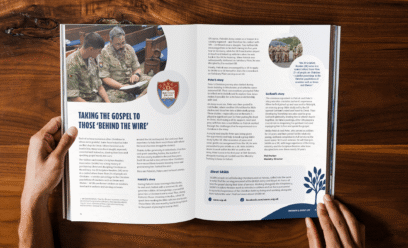Still Gambling with our Future

The latest issue of Affinity’s Social Issues Bulletin is out now. It is free to download, as are all previous editions. One of the articles is by Toby Lucas, looking at the growing issue of gambling addiction in the UK.
Every generation remembers their football team’s kit from their childhood – was the Newcastle United you remember sponsored by Northern Rock? Virgin? NTL? For children these days, however, the team they watch weekly is emblazoned with ‘Fun88’, a betting company. And the chances are the team they are playing against is also sponsored by a gambling firm. Over half of the teams in the top two tiers of English football have gambling sponsors on their kit.[1] Columnist Owen Jones reported that a four-year-old boy was so influenced by this phenomenon that he named his teddy bear ‘Betway’ – the shirt sponsor for West Ham.[2]
It is estimated that today around 55,000 children are addicted to gambling, and over two million families are impacted by problem gambling.[3] And the industry has not just blighted the ‘beautiful game’; the Internet, mobile gambling, and aggressive marketing strategies tailored towards young people on social media have transformed the gambling landscape for a generation.
The recent lockdown regimes have highlighted many of the harms caused by the gambling industry. Many cases have come to light of vulnerable people being groomed to gamble by ‘VIP’ schemes, the COVID measures creating ‘a perfect storm for relapse’.[4] Professional athletes have spoken out in the media about their battles with gambling addiction. Regulators have seen ad after ad reported for encouraging young people to gamble, and the ties between bookmakers and professional sports have come under fresh scrutiny.
Thankfully, there has been a groundswell of demand for change. Voices from both the left and right have raised concerns, with a cross-party alliance of MPs consistently calling for meaningful reform. In 2019 the maximum stake for addictive Fixed Odds Betting Terminals was successfully reduced from £100 to £2, targeting one of the most addictive gambling entry points. Banks agreed to prevent credit card gambling, and more charities have stepped up to help people manage their money responsibly. Public opinion (regarded by Reformed theologians as a manifestation of God’s common grace)[5] has shifted, and it seems real change will be made.
In December, the Government commissioned a review to update the 2005 Gambling Act to ‘ensure we are tackling problem gambling in all its forms to protect children and vulnerable people’. Culture Secretary Oliver Dowden called the current Act ‘an analogue law in a digital age’.[6] Whilst we can rejoice that meaningful reform is on the table, the flaws in the Act don’t just boil down to being ‘outdated’. Rather, the 2005 Act was problematic from the start.
In 2005 The Christian Institute published ‘Gambling with our future’, a booklet warning of the dangers of the Blair Government’s radical gambling proposals.[7] We pointed out the hollow messaging around the then Bill, that gambling was ‘just a bit of harmless fun’. In reality, the driving force behind liberalising the law was money – money for the gambling industry, which had been lobbying hard for deregulation and making substantial donations to political parties,[8] but also money for the Government, who even admitted that the lure of vast tax revenues was a factor.[9]
The Institute wasn’t alone in sounding the alarm, with various Parliamentary committees and reports repeatedly warning that problem gambling would inevitably rise. One committee warned: ‘Almost all of the evidence we have received points to the fact that this legislation would increase the number of people in the United Kingdom with a gambling problem.’[10] None of what has transpired since should come as a surprise.
The flagship provision of the 2005 Act, and one of the chief concerns of the Institute, allowed huge ‘Las Vegas-style’ casino resorts to be built in Britain. Mercifully, this was not to be, with Prime Minister Gordon Brown refusing to authorise any such project in 2007.[11] However, the most damaging aspect of the Act was not building super-casinos, but the digital revolution, which placed a betting table and bookmaker in everyone’s back pocket. The Institute remarked in 2005 that ‘remote gambling represents a quantum leap in accessibility’, and just as technology has been the avenue for pornography to be pushed on ever-younger children, gambling too has been made aggressively accessible.
In 2005 we were open to being accused of being spoilsports afraid of ‘progress’, but we must see from this how vital it is that as Christians we ignore the insults and continue to speak out for what is right to protect our neighbours and our children. We can give thanks that the review of the Gambling Act looks promising and that public opinion has moved against a lucrative industry. Whatever opportunities present themselves to help secure reform, we must be ready to respond.
Toby Lucas is Public Affairs Assistant at The Christian Institute.
(This article was originally published in the Affinity Social Issues Bulletin for February 2021. The whole edition can be found at www.affinity.org.uk)
[1] https://www.bbc.co.uk/sport/football/51377202
[2] https://www.christian.org.uk/news/columnist-gambling-adverts-should-be-kicked-out-of-football/
[3] https://www.dailymail.co.uk/news/article-8481115/A-gambling-suicide-day-Shocking-report-finds-2m-families-blighted-problem-gambling.html
[4] https://www.christian.org.uk/news/gambling-addict-lockdown-is-the-perfect-storm-for-relapse/
[5] Martyn Lloyd-Jones, “Creation and Common Grace” in Great Doctrines of the Bible: God the Holy Spirit (Wheaton, IL: Crossway, 2003), 2:24–28.
[6] https://www.christian.org.uk/news/govt-launches-wide-ranging-review-of-gambling-law/
[7] https://www.christian.org.uk/wp-content/uploads/gambling-with-our-future.pdf
[8] The Guardian, 10 November 2004
[9] House of Lords, House of Commons Joint Committee on the Draft Gambling Bill, Session 2003-04, HL Paper 63-II, HC 139-II, vol. II, Ev. 351, para. 9; The Guardian, 20 October 2004; Government Response to the First Report of the Joint Committee on the Draft Gambling Bill; Session 2003-2004, Department for Culture, Media and Sport, June 2004, page 31
[10] House of Lords, House of Commons Joint Committee on the Draft Gambling Bill, Session 2003-04, HL Paper 63-I, HC 139-I, vol. I, page 7
[11] https://www.telegraph.co.uk/news/uknews/1557170/Gordon-Brown-scraps-super-casinos.html
Stay connected with our monthly update
Sign up to receive the latest news from Affinity and our members, delivered straight to your inbox once a month.



